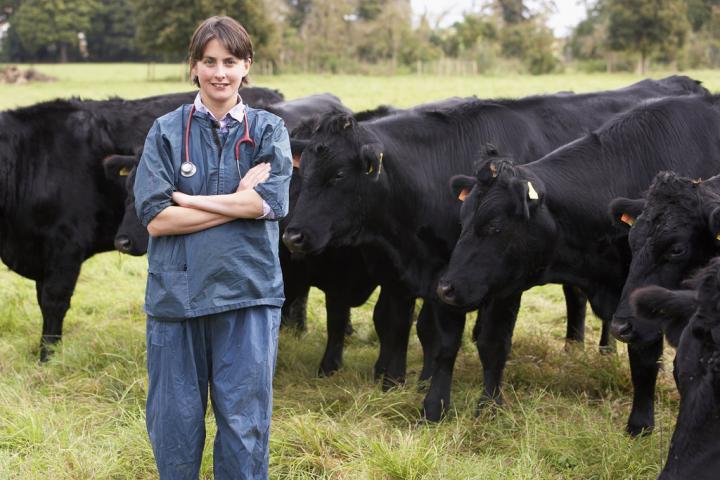January 17, 2018 2:19 PM EST

With more than a decade passed since I graduated from veterinary school, I have enough years under my belt that I can look back and consider some things that I wish I had learned earlier. While I am confident that my veterinary school prepared me for many things related to medicine and surgery, it left me somewhat unprepared for many of the most difficult situations that I would face in my career. So, if I were to go back and do it all over again (or create my own veterinary school curriculum), here are some things that I would add:
- How to deliver bad news to clients: Bad news is anything told to an owner that is unexpected and changes the life of that owner as they know it. This could mean the discovery of a terminal illness such as cancer or the diagnosis of Diabetes Mellitus, which can require lifelong daily insulin injections. In any case, these conversations are emotionally charged for everyone involved and difficult when one does not have the necessary communication training to handle them.
- Things don’t always go as planned: Unanticipated outcomes are inevitable in every veterinarian’s career and can result from an unexpected reaction to a treatment or procedure (e.g., vaccine reaction, anesthetic complication), or lack of response to treatment due to biological variability. These situations are out of our control but can leave veterinarians feeling inadequate and ashamed.
- Veterinarians make mistakes: Although nobody admitted it during my veterinary training and still few like to talk about it, we are all human and we all make mistakes. As much as we wish we could be perfect, this is inevitable and the more we can talk about it, the sooner the blame and shame mentality that is pervasive in medicine will go away.
- Self-compassion is key: Not only must we recognized that mistakes happen, we must also be kind to ourselves when they do. Too often we berate ourselves with self-talk that is critical beyond that which we would say to our worst enemy. In some of my darkest moments within this profession, I have benefited the most from speaking to myself just as I would to a friend if they were in the same difficult situation.
- How to work cohesively in teams: While most, if not all, veterinarians have had the pleasure (or pain) of working in groups or playing on sports teams as students, these experiences are seemingly inadequate to prepare us for the challenging team dynamics that we face in practice daily. Many key components are needed for successful team work to occur and include common goals, accountability, and constructive feedback within a supportive environment. Without these, teams are likely to fall apart and staff turnover is inevitable, which ultimately increases stress and burnout.
- Communicating with difficult clients: It is no secret that many veterinarians chose veterinary medicine because animals are easier to deal with than some people! Whether angry, emotional, or indecisive, challenging clients can create a great deal of stress among veterinarians who might not have the communication tools to handle them. Communication training is an absolute must for veterinarians to be able to thrive in practice.
- Managing ethical dilemmas: Any time a veterinarian is faced with a situation when his or her moral beliefs conflict with a work-related policy or procedure, moral stress is occurring. A common example veterinarians experience in practice is the euthanasia of a pet because the owner cannot afford the cost of its medical care. Despite ethics playing a large role in the struggles that we commonly face, we have little to know training on ethical and moral reasoning.
- Setting boundaries is a must: As veterinarians we all too often allow our boundaries to be crossed or we do not set boundaries at all. A common example is giving out our personal cell phone number to clients or going in to work on our days off. These are things that most human physicians would never do, yet we fail to abide by those boundaries as veterinary care providers, leaving the lines blurred between work and home life and making balance a constant struggle.
- Self-care is a necessity (not a luxury): As care providers, veterinarians are entrenched in looking after others, so much so that we often neglect to look after ourselves. What I’ve come to realize is that we have a moral obligation to self-care in that performing sufficient self-care prevents harming those that we are caring for.
- There’s more to life than veterinary medicine: Growing up in a house with both parents as veterinarians, it seemed like nothing existed outside of this profession. And while I love this profession dearly, I now appreciate that there is a life to be had outside of veterinary medicine. We are not just veterinary care providers, we are siblings, parents, pet owners, friends, and leaders. Making time to have a life outside of work is imperative to sustaining work in this profession long term.
Marie K. Holowaychuk, DVM, DACVECC is a small animal emergency and critical care specialist and certified yoga and meditation teacher who has an invested interest in the health and well-being of veterinary professionals. She facilitates wellness workshops, boot camps, and retreats for veterinarians, technicians, students, and other veterinary care providers. To sign up for newsletters containing information regarding these events and veterinary wellness topics, please click here. More information can be found at www.criticalcarevet.ca.
